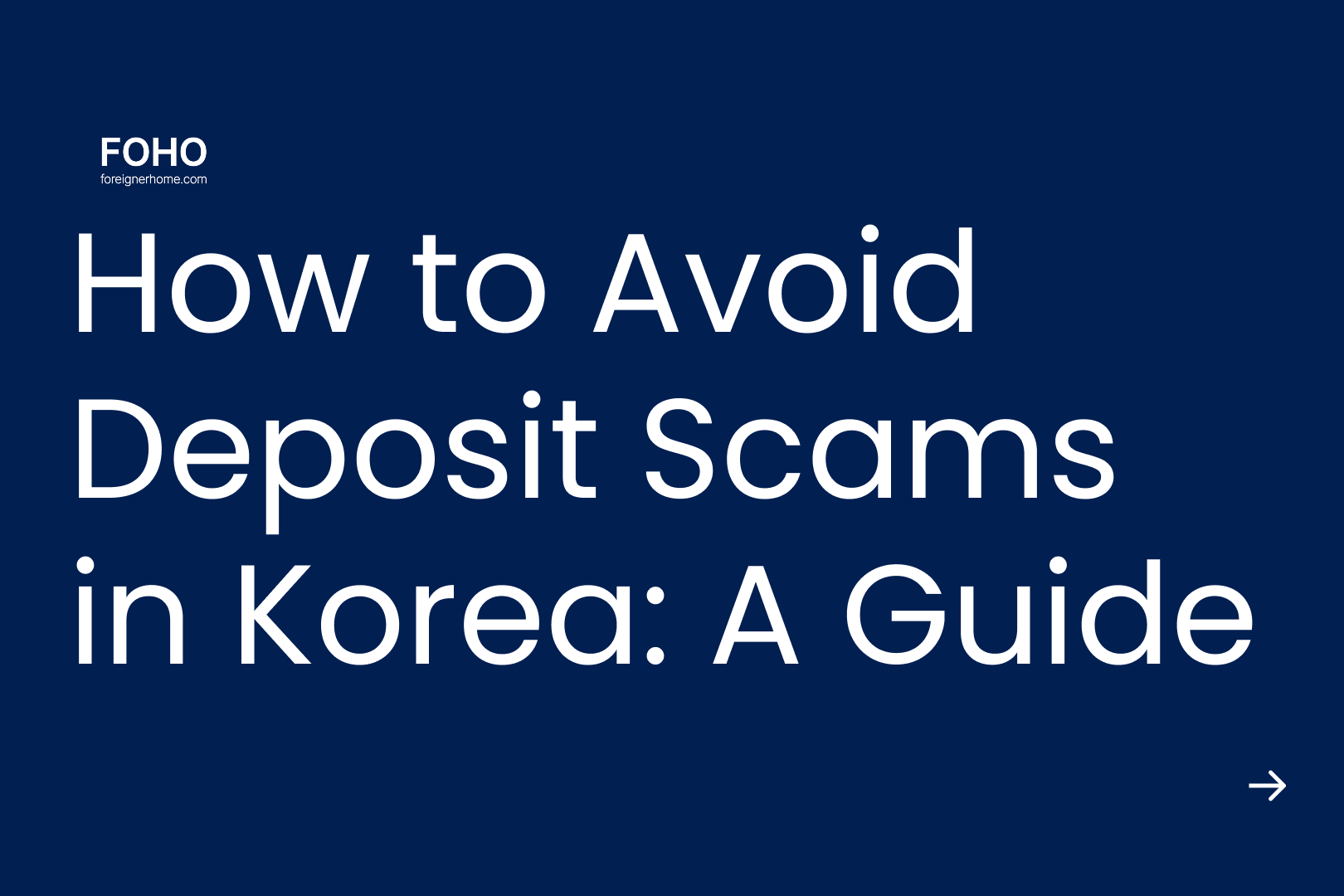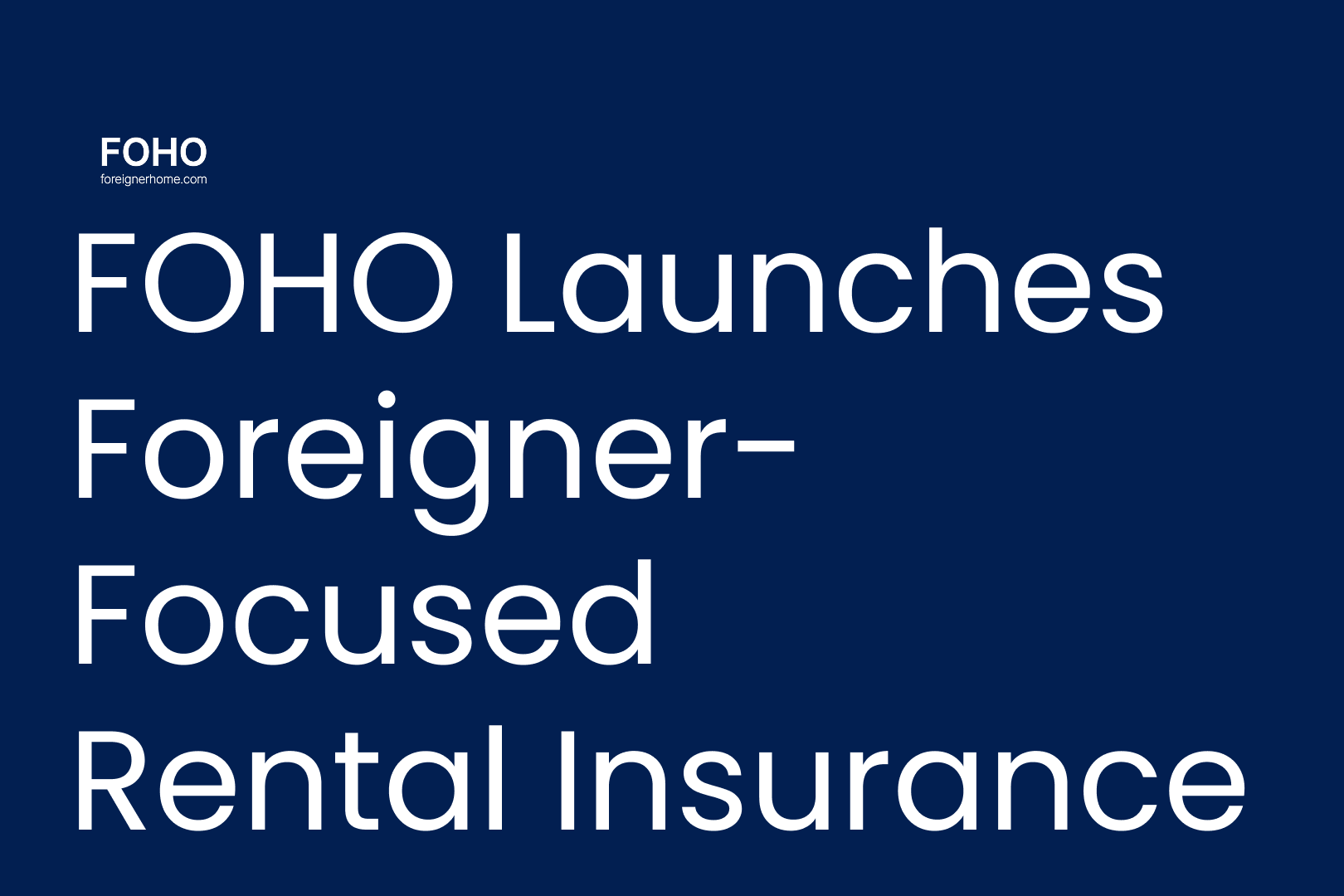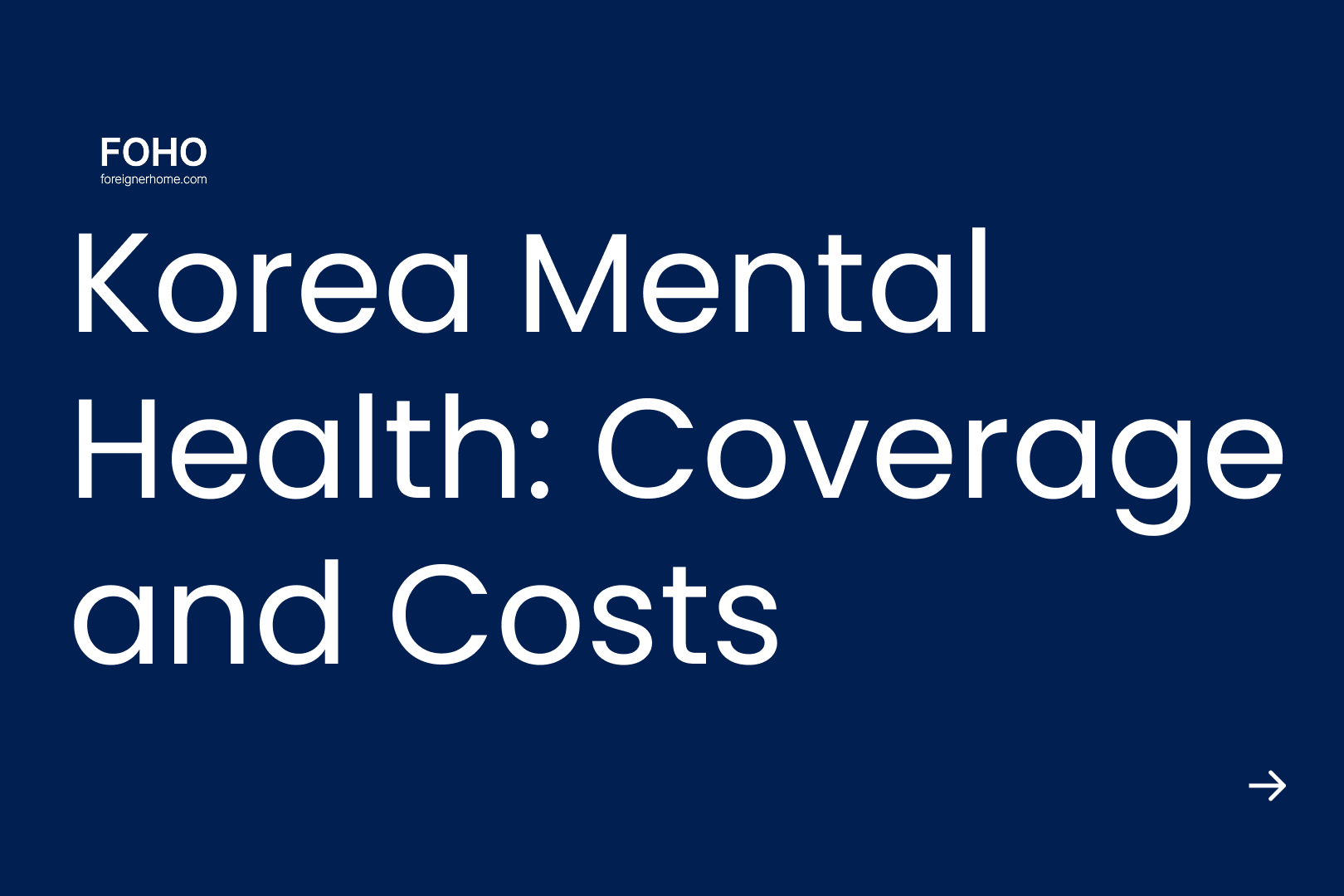FOHO Blog – Global Housing & Living Guide for Foreigners
How to Avoid Deposit Scams in Korea: A Guide
Avoid deposit scams in Korea with our step-by-step guide. Learn to check property debt, understand the 'Deung-gibu,' and secure your deposit.

Table of contents
The Foreigner's Guide to Avoiding Jeonse Scams in Korea
Section 1: How the Scams Work (The 2-Minute Briefing)
1. The 'Kkangtong Jeonse' (Empty-Can Lease)
- The Math: (Landlord's Mortgage) + (Other Tenants' Deposits) > Property's Market Value
- The Problem: If the landlord defaults, the property is auctioned. The bank and any senior-priority tenants get paid first. By the time it’s your turn, the "can" is empty. There is no money left to repay your deposit.
2. The 'Mujabon Gap-tuja' (No-Money Gap Investment)
- The Problem: The scammer never invested a single won of their own money. Their entire "business" relies on finding new tenants to pay back old tenants. When the market slows, the scheme collapses. The landlord—who has no money and may own hundreds of homes this way—vanishes, and you are left with an unpayable debt.
Section 2: Your 3-Step Due Diligence Protocol
Step 1: Analyze the Property Register (The Deung-gibu-deungbon)
Pyojebu(Cover Page): Shows the physical address and details.- Check: Is the "Building Use" listed as
주택(Jutaek / Housing)? If it says근린생활시설(Neighborhood Facility) or anything else, you may not be protected by housing laws.
Gap-gu(Ownership Section): Shows all owners, past and present.- Check: Does the "Current Owner's Name" exactly match the ID of the person you are signing the contract with?
- Red Flag: Look for any record of
가압류(Gamnyu / Provisional Seizure),압류(Amnyu / Seizure), or신탁(Sintak / Trust). These are giant, flashing "DANGER" signs of financial distress or complex ownership. Walk away.
Eul-gu(Debt Section): Shows all non-ownership rights, like mortgages.- Check: Look for
근저당권(Geun-jeodang / Mortgage). - Action: Write down the
채권최고액(Chaekwon-choego-aek). This is the "Maximum Debt Amount," typically 120-130% of the actual loan. You must use this higher number in your calculation.
Step 2: The "Kkangtong" Test: Do the Math
- A) Find the Property's Market Value (
Sise) - Apartments: Easy. Check KB Real Estate or Naver Real Estate for the official, bank-trusted market price.
- Villas/Officetels: Difficult. This is the danger zone. You must ask multiple realtors in the area for the estimated maemae-ga (sale price), not the jeonse-ga (jeonse price). Use apps like Zigbang or Dabang to cross-check recent sale prices (not lease prices) for similar buildings.
- B) Find the "Total Debt"
- This includes the
Geun-jeodang(Mortgage) you found in Step 1. - It also includes a hidden trap:
선순위 보증금(Seon-sunwi Bojeung-geum), or "Senior-Priority Deposits." If you are in a dagagu (multi-family) building owned by one person, all the tenants who moved in before you get paid before you in an auction. - Your Action: You must ask the landlord or realtor for the
확정일자 부여현황(Hwakjeong-ilja buyeo-hyeonhwang / List of Secured Leases). This official document from the community center shows all other deposits in the building. If they refuse to show you this, walk away immediately.
- C) Do the Calculation
- (Mortgage) + (Senior Deposits) + (Your Deposit) = ?
- (That Total) ÷ (Market Value) = ?
- If that final number is over 0.8 (80%), this is a high-risk "Kkangtong Jeonse."
Step 3: Verify the People
- The Landlord: Ask for a
국세완납증명서(Gukse-wannap-jeungmyeongseo / Certificate of National Tax Payment). In an auction, unpaid national taxes are often paid before your deposit. A landlord who can't provide this is a red flag.
- The Realtor: Look for their
공인중개사(Gong-in Junggaesa / Certified Realtor) license on the wall. A trustworthy realtor is registered with the government and has insurance. Be very suspicious of realtors who are "friends" with the landlord or work directly for the construction company of a new villa.
Section 3: Your Two-Part Safety Net (Do NOT Skip This)
Part 1: The Legal Basics (On Move-In Day)
- File
전입신고(Jeonip-singo / Move-in Report): This gives you대항력(Daehang-ryeok), or "Countervailing Power." It means that even if the building is sold, your lease is protected, and the new owner owes you your deposit. This power takes effect at midnight after the day you file.
- Get
확정일자(Hwakjeong-ilja / Fixed Date): This is a stamp on your contract. It gives you우선변제권(Useon-byeonje-kwon), or "Preferential Repayment Right." It secures your place in line to be paid in an auction, based on the date of the stamp.
Part 2: The Ultimate Protection: Jeonse Guarantee Insurance
특약 (Teuk-yak), to your contract."This contract is conditional on the tenant's successful application for a HUG (or SGI) jeonse guarantee insurance policy. If the application is rejected due to issues with the property (e.g., high debt ratio, legal issues), this contract is void, and the landlord must immediately return the full deposit and any fees."
Section 4: If the Worst Happens: Getting Help
- DO NOT MOVE OUT: The moment you move your official address, you can lose all your legal protections (
Daehang-ryeok).
- If You Must Move: Before you go, you must file an
임차권등기명령(Imcha-kwon-deunggi-myeong-ryeong / Leasehold Registration Order) at the local court. This legal action "freezes" your status as the tenant, allowing you to move out while keeping your legal priority and rights intact.
- Get Free Legal Help:
- Korea Legal Aid Corporation (KLAC): Call 132 (no area code). They provide free legal counseling for foreigners.
- Immigration Contact Center: Call 1345. They can connect you to legal aid and translation services.
- Seoul Global Center: Many municipal governments run global centers with free legal and real estate counseling.
Final Glossary: Key Terms to Know
- Jeonse (전세): The unique Korean lease system (large deposit, no monthly rent).
- Wolse (월세): A standard monthly rental with a smaller deposit.
- Dagagu-jutaek (다가구주택): A multi-family building with a single owner. (High-risk for scams).
- Sinchuk-villa (신축빌라): A newly built villa. (High-risk due to unclear market price).
- Deung-gibu-deungbon (등기부등본): The official property register (your most important document).
- Geun-jeodang (근저당권): A mortgage.
- Chaekwon-choego-aek (채권최고액): The maximum debt amount listed for a mortgage.
- Seon-sunwi Bojeung-geum (선순위 보증금): "Senior" deposits from other tenants who get paid before you.
- Jeonip-singo (전입신고): Your official move-in report. (Gives you the right to stay).
- Hwakjeong-ilja (확정일자): The fixed-date stamp on your contract. (Gives you priority to get paid).
- Teuk-yak (특약): A special clause or condition in your contract. (Your key offensive weapon).
- Currency: All transactions will be in Korean Won (KRW). As a general reference, 1,000,000 KRW is approximately $770 USD (assuming 1 USD = 1,300 KRW), but you should check current rates.
A Simpler, More Affordable Way to Find Your Home
Settle in faster with FOHO
Browse more verified listings and message landlords in minutes. Lock in your lease with FOHO's secure payments.
Get Foreigner-Friendly Housing Tips
Get the latest news delivered to your inbox.

Nov 4, 2025
FOHO Launches Foreigner-Focused Rental Insurance
FOHO’s deposit insurance protects foreign tenants in Korea from landlord defaults. Stay safe with clear coverage and fast claims.

Oct 31, 2025
How to Convert E-9 Visa to E-7-4 in Korea
A guide for Vietnamese & Chinese E-9 workers in Korea. Learn the E-7-4 visa points system, F-2 requirements, and compare GME vs. Sentbe for remittance.

Oct 29, 2025
Korea Mental Health: NHIS Coverage and Costs
Get help with mental health in Korea. This guide for foreigners explains how to use NHIS, find low-cost options, and get medication prescriptions locally.

Oct 28, 2025
How to Find Community in Korea as a Foreigner
This guide for expats explains how to make friends in Korea. Learn the pros and cons of Meetup, local clubs, and apps like Somoim.
Subscribe to the FOHO newsletter
Actionable housing insights in your inbox.